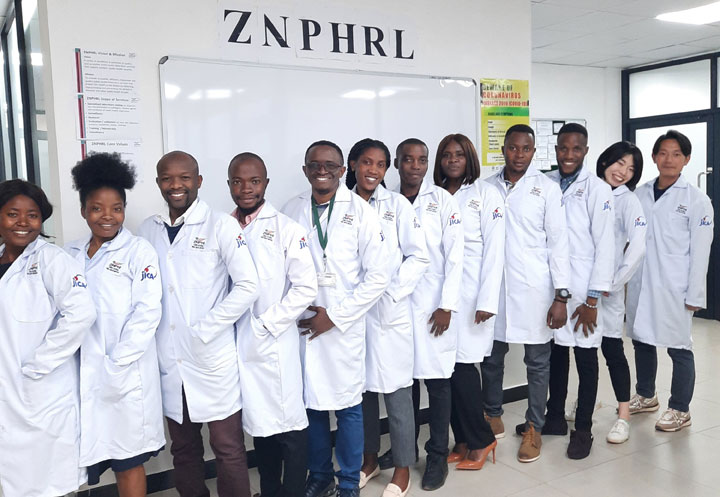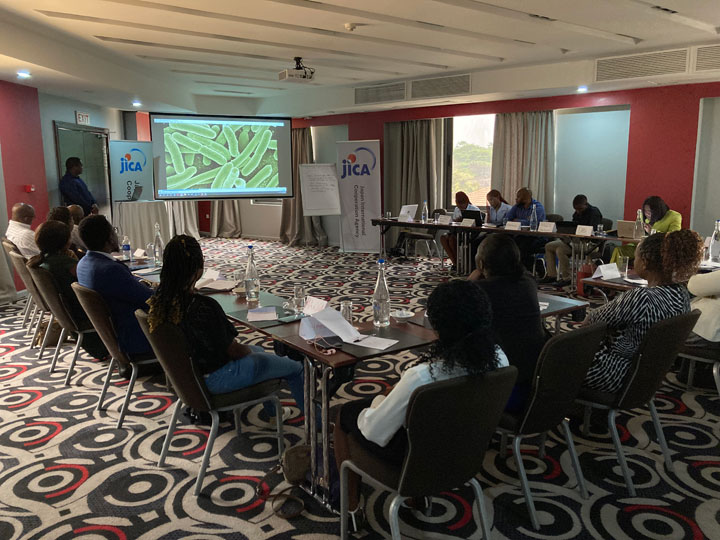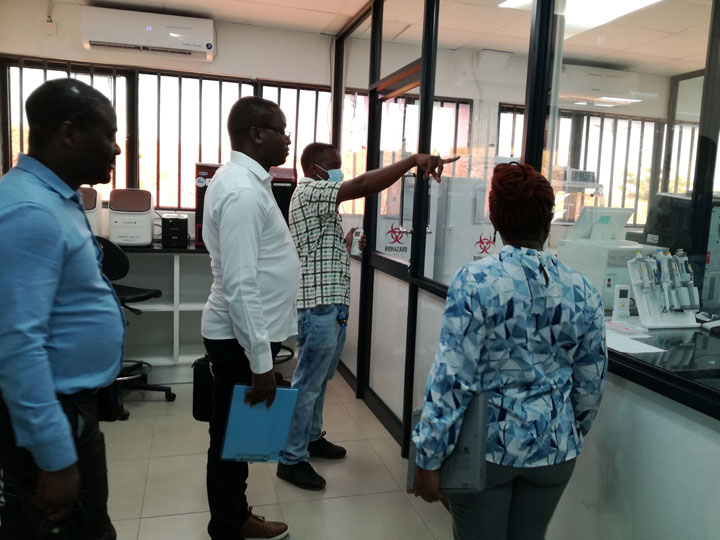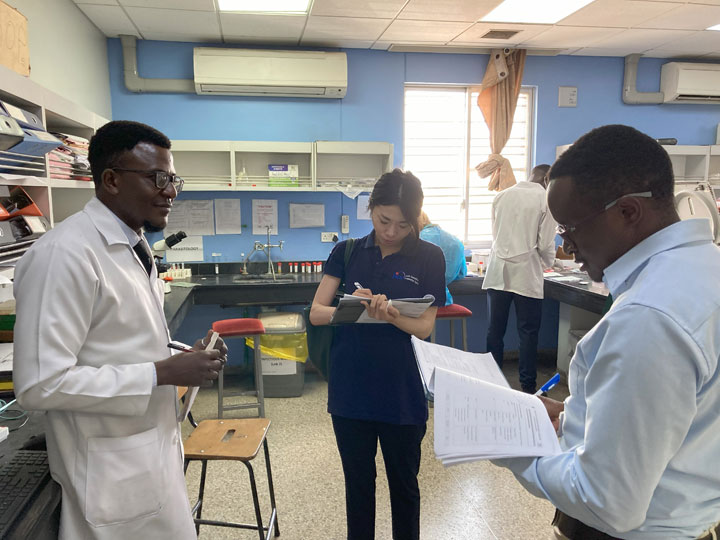WELCOME TO THE PROJECT
The Zambia National Public Health Institute (ZNPHI), in collaboration with the Japan International Cooperation Agency (JICA), is implementing the Project for Strengthening Laboratory-Based Surveillance for Infectious Diseases, launched in April 2023, as a project to improve the capacity of the Zambia National Public Health Institute (ZNPHI)/Zambia National Public Health Reference Laboratory (ZNPHRL) to conduct laboratory-based surveillance through capacity building for pathogen detection and analysis, laboratory management system, and building network with stakeholders.

Providing white coats with embroidery of “JICA” and “ZNPHI” to Laboratory Technicians
The Project also conducts training for lab technicians on various topics encompassing the building of capacity of the ZNPHRL and the laboratories from the project sites, therefore, Japanese experts will continue to work with laboratory scientists to enhance the capacity of ZNPHRL.

Health facility staff members in the sentinel surveillance system for acute gastroenteritis (AGE surveillance).
The Project is domiciled within the Zambia National Public Health Reference Laboratory and is there to support strengthening ZNPHRL's capacity to provide reliable analysis and reporting in laboratory-based infectious disease surveillance such as rabies. Activities are underway to establish a surveillance system, particularly for diagnosing acute gastroenteritis, including cholera, and training or workshops are being organized. Pilot sites have been already selected from Lusaka (Kanyama Level 1 Hospital and Chipata Level 1 Hospital), Kapiri-Mposhi in Central Province (Kapri Urban Clinic), Chipata in Eastern Province (Mchini Health Post), and Mpulungu in Northern Province (Mpulungu Urban Clinic).

Site Map
More hence, the Project also enhances ZNPHRL’s laboratory management.
The Project’s activity for lab management mainly targeting (1) Quality management system (QMS), (2) Biosafety and biosecurity (BSBS), and (3) Equipment management. QMS is fundamental system to enhance laboratory services for providing reliable test results. BSBS is essential for public health reference laboratories handling infectious disease specimens that pose a threat to public health, and therefore the laboratory must strengthen and strictly adhere to BSBS and manage the risks associated with BSBS in order to protect the safety and health of staff, community, and environment. Sustainable and proper management of laboratory equipment is also critical to laboratory service delivery. Well maintained equipment commits to provide safe testing processes and reliable results.
The Project supports strengthening ZNPHRL’s capacity to provide reliable analysis and reporting in laboratory-based infectious disease surveillance. To enhance reliability of the quality of surveillance, laboratory management is the key. Some activities that have been conducted so far so as to enhance capacity of the ZNPHRL include supporting to develop ZNPHRL Strategic Plan, support implementation of the QMS which includes gap assessment, develop or implement Annual Quality Management Plan, hold Management Review Meeting, supporting Inventory Management etc. QMS trainings are also part of the activities that have been conducted in collaboration with the Ministry of Health as well as networking with the surveillance sites to ensure the quality of specimens.

The team is conducting a gap assessment to enhance QMS.

The team conducting interviews at a hospital that is part of the AGE surveillance program
X
